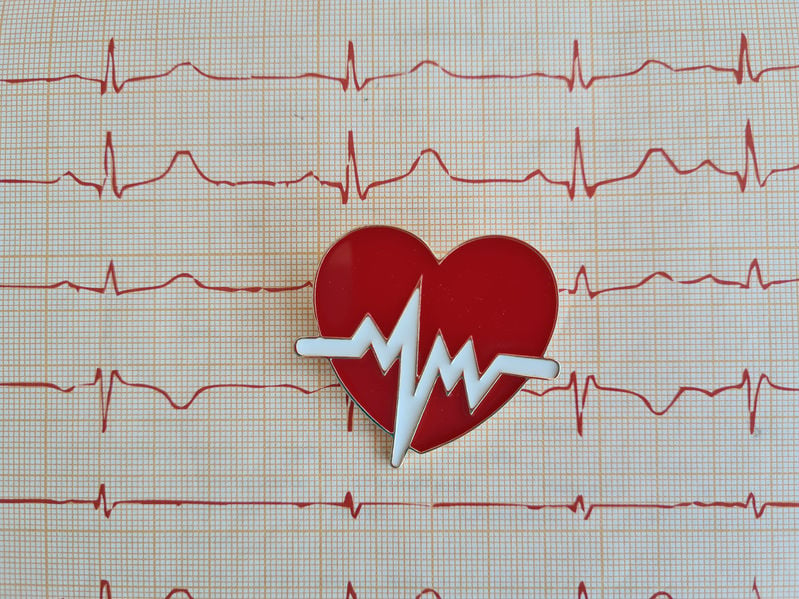Are You Missing A Beat?
Heart conditions are varied and delicate situations, impacting millions of Americans of varying ages. A common cardiac condition is an irregular heartbeat or arrhythmia. Irregular heartbeats occur when the heart beats too fast, too slow, or irregularly, especially at rest. This can happen occasionally or be a constant problem for the affected person. Even if the issue is mild, seeing a doctor for an irregular heartbeat is critical for long-term health. In many cases, arrhythmias are a signal of a severe underlying condition that needs medical attention.

When to worry
The heart is expected to maintain a steady rhythm, sending blood through the body and back every second. This rhythm will steadily increase based on factors like age, fitness, and type of physical activity. However, if the heart beats irregularly, there is an increased risk of palpitations, strokes, heart failure, and sudden death. An irregular heartbeat can also raise an individual’s stress and anxiety levels, potentially leading to worsening symptoms over time. Signs of an irregular heartbeat should be taken seriously. Early intervention can lead to helpful, life-saving solutions.
Causes and the road to treatment
Heart palpitations can be a difficult condition to track and diagnose. The condition has multiple causes, with some requiring different diagnostic techniques. Some people are born with heart defects that may lead to irregular heartbeats. Other reasons include angina, heart failure, coronary artery disease (CAD), hypertension, or a thyroid disorder. High stress, anxiety, panic attacks, or extreme physical activity can also lead to arrhythmias. Studies show conditions like sleep apnea, diabetes, or obesity increase the risk of irregular heartbeats. Certain medications, caffeine, and electrolyte imbalances are other possible concerns. Once a heart specialist finds the root cause, the following treatments may be recommended.
1. Medications that matter
Some underlying reasons for an irregular heartbeat may respond well to medication. These drugs improve electrical function, enhance nerve health, and potentially prevent future arrhythmia. Common drugs include beta-blockers and calcium, sodium, or potassium channel blockers. The medications can help regulate ions in the heart and are commonly prescribed to treat angina or hypertension. Some people can benefit from blood thinners, which reduce the risk of blood clots, a common cause of irregular heartbeats. Medication should be taken as directed for the best results.
2. Set the pace with a pacemaker
Sometimes, the heart may need additional support to ensure consistent electrical signals and a normal heart rhythm. In this case, a surgeon or medical team will consider surgically installing a pacemaker or implantable cardioverter-defibrillator (ICD) device. Pacemakers are ideal for patients with a slow heart rate. The device is surgically installed near the heat and helps by sending additional electrical signals. ICDs perform the same task as pacemakers but can also shock the heart if a life-threatening arrhythmia is detected. These devices are ideal for patients with a high risk of heart attacks or people who have had a previous severe episode. Pacemakers and ICDs are known to provide vital support to the heart, leading to improved quality of life.
3. Consider ablation treatment
Surgical intervention may be necessary for advanced or severe cases of irregular heartbeat. A surgeon can perform a procedure to improve blood flow to the heart or overall function. Cardiac ablation, for instance, is a common procedure to treat arrhythmia originating in the heart's upper chambers. The surgeon passes catheters through the blood vessels to the heart. These catheters send radiofrequency energy to destroy scar tissue or underlying conditions limiting heart function. Studies show the procedure can improve the heart’s performance and reduce arrhythmias.
Lifestyle changes can help
Medications, pacemakers, and ablation treatment can all improve heart health. However, doctors will recommend comprehensive lifestyle changes to support the heart and increase the effectiveness of the chosen treatment. Typical recommendations include quitting smoking, reducing weight, working out, and making dietary changes. Reducing stress, improving sleep, and limiting caffeine and alcohol use all help to reduce arrhythmia. Lifestyle changes can also improve other conditions causing heart irregularities while enhancing treatment.
Aim for better heart health
The heart tirelessly pumps blood throughout the body and must maintain a normal, healthy cadence. However, there are instances where irregular heartbeats can occur. Heart health is essential for long-term health and wellness. If there is a sudden change in heart rhythm, chest pain, shortness of breath, or dizziness, see a doctor immediately. From there, the doctor and patient can work together to address this serious condition with effective treatment and lifestyle changes.


